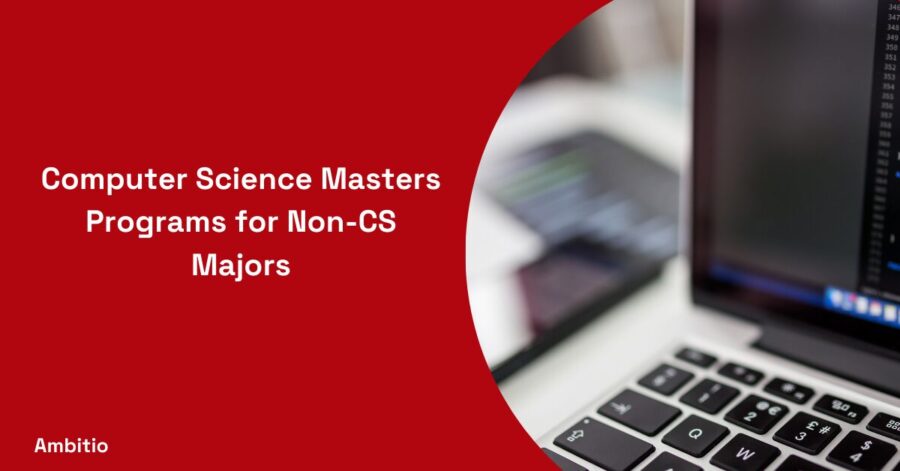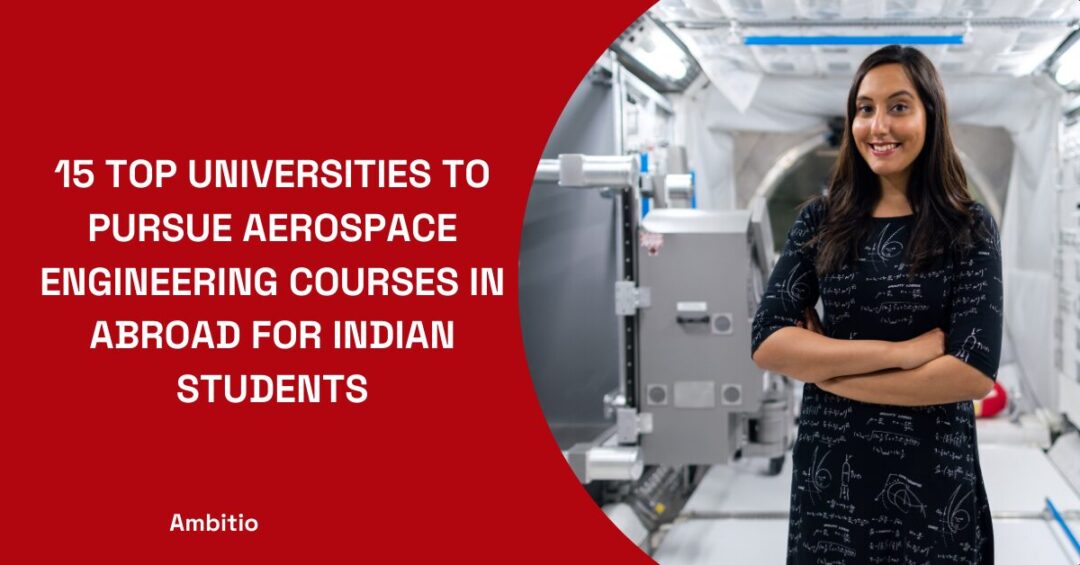12 December 2024
8 minutes read
Computer Science Masters Programs for Non-CS Majors: A Gateway to the Tech World

Introduction
In an era where technology pervades every aspect of our lives, the demand for skilled computer science professionals has skyrocketed. This has opened doors for individuals from diverse academic backgrounds to enter the field of computer science, even without a traditional CS undergraduate degree. Masters in Computer Science programs for non-CS majors are specifically tailored to bridge this educational gap and launch successful careers in tech.
Why Computer Science is a Strategic Choice for Non-CS Majors
The Growing Demand for Computer Science Skills in Various Industries
The importance of computer science extends beyond the tech industry. From healthcare to finance, CS skills are increasingly valued across various sectors. This interdisciplinary relevance makes a Master’s in Computer Science an attractive option for non-CS majors.
Computer Science: A Versatile Field
- Interdisciplinary Applications: Learn how CS skills are revolutionizing fields like medicine, finance, and more.
- Innovation and Creativity: Discover how a background in CS fosters innovation in various industries.
- Increasing Demand: Understand the growing need for computer science expertise in non-tech sectors.
Transitioning to Computer Science from a Non-CS Background
Transitioning to a new field can be daunting, but it is increasingly common and supported in the world of computer science. This section explores how non-CS majors can effectively pivot to a career in CS.
Preparing for a Shift in Career
- Assessing Skills and Interests: Identify how your current skills can complement a career in CS.
- Overcoming Challenges: Strategies for managing the transition and catching up with foundational CS knowledge.
- Success Stories: Inspiring examples of non-CS majors who successfully transitioned into CS careers.
The Role of Bridge Programs in Master’s CS Education
Bridge programs play a crucial role in preparing non-CS majors for a Master’s in Computer Science. These programs are designed to fill knowledge gaps and ensure a smooth transition into advanced CS studies.
Building a Strong Foundation
- Curriculum Overview: What to expect in a bridge program, from basic programming to data structures.
- Benefits of Bridge Programs: Understanding how these programs can set you up for success in your Master’s studies.
- Choosing the Right Program: Tips for selecting a bridge program that aligns with your educational needs.
Delving into the World of Computer Science for Non-CS Majors
Online Master’s in Computer Science: A Flexible and Accessible Option
Online Master’s programs in computer science are an excellent option for non-CS majors, offering the flexibility to balance studies with personal and professional commitments.
Advantages of Online Learning
Online learning has revolutionized education, offering unique advantages, especially for students pursuing a Master’s in Computer Science. Here are some key benefits of online learning in this field:
- Flexibility and Convenience:
- Schedule Freedom: Attend classes and study at your own pace, fitting education into a busy lifestyle.
- Location Independence: Learn from anywhere, eliminating the need for commuting or relocating.
- Access to Diverse Programs and Expertise:
- Wide Range of Choices: Choose from a variety of programs globally, not limited by geographical location.
- Expert Instruction: Gain access to renowned professors and industry experts from top universities worldwide.
- Cost-Effectiveness:
- Lower Overall Expenses: Often more affordable than on-campus programs, with savings on commuting, housing, and materials.
- Continued Earning Potential: Maintain your job and income while studying.
- Advanced Learning Technologies:
- Interactive Platforms: Utilize cutting-edge online learning platforms and tools for an engaging educational experience.
- Digital Resources: Access a wealth of resources like online libraries, lectures, and forums.
- Networking Opportunities:
- Global Community: Connect with peers, professionals, and alumni from around the world.
- Online Collaboration: Engage in group projects and discussions, building teamwork skills in a virtual environment.
- Self-Paced Learning:
- Personalized Pace: Move through course material at a pace that suits your learning style.
- Flexible Deadlines: Some programs offer adjustable deadlines to accommodate students’ personal and professional commitments.
- Development of Self-Discipline and Time Management Skills:
- Enhanced Discipline: Cultivate self-motivation and discipline by managing your study schedule.
- Time Management Mastery: Balance studies with other responsibilities, a skill valued in the professional world.
- Immediate Application of Skills:
- Real-World Application: Apply new knowledge and skills directly to your current job.
- Project Work: Engage in projects that can be immediately relevant to your career or personal interests.
- Customizable Learning Experience:
- Electives and Specializations: Tailor your learning with electives and specializations that align with your career goals.
- Interactive Content: Access to various types of content like videos, quizzes, and interactive modules, catering to different learning styles.
- Support and Resources:
- Academic Assistance: Receive support from faculty and staff via email, chat, or video calls.
- Online Communities: Participate in forums and discussion boards for peer support and knowledge exchange.
- Accessibility for Diverse Populations:
- Inclusivity: Ideal for individuals with mobility challenges or those living in remote areas.
- Family-Friendly: Particularly beneficial for students with family responsibilities.
- Continual Learning:
- Lifelong Access to Course Materials: Many programs offer lifelong access to course materials, allowing for ongoing learning and reference.
- Lifelong Access to Course Materials: Many programs offer lifelong access to course materials, allowing for ongoing learning and reference.
Online learning in Computer Science Master’s programs provides a modern, flexible, and effective educational experience. It enables students to balance their education with personal and professional responsibilities while gaining access to quality education and global networking opportunities.
Core Curriculum and Advanced Topics in Computer Science Master’s Programs
A Master’s program in Computer Science, especially for non-CS majors, typically includes a core curriculum designed to build a solid foundation in key CS concepts.
Additionally, these programs often offer advanced topics, allowing students to specialize in areas of their interest. Here’s a breakdown of the core curriculum and advanced topics typically found in these programs:
Core Curriculum
- Programming Fundamentals:
- Introduction to programming languages such as Python, Java, or C++.
- Understanding of algorithms, data structures, and basic software development principles.
- Computer Systems and Architecture:
- Basics of how computer systems work, including hardware and software interactions.
- Study of computer architecture, operating systems, and system programming.
- Databases and Data Management:
- Principles of database design, SQL, and data management.
- Exposure to NoSQL databases and big data technologies.
- Networks and Communications:
- Understanding of networking principles, protocols, and internet technologies.
- Insights into wireless communication, network security, and cloud computing.
- Mathematics for Computer Science:
- Topics include discrete mathematics, probability, statistics, and linear algebra.
- Essential for understanding algorithms and machine learning models.
- Web Development and Design:
- Fundamentals of web development including HTML, CSS, JavaScript, and web frameworks.
- Concepts of responsive design and user experience (UX).
- Software Engineering Principles:
- Covers software development life cycles, agile methodologies, and software testing.
- Focus on project management, team collaboration, and version control systems.
Advanced Topics
- Artificial Intelligence and Machine Learning:
- Study of AI principles, machine learning algorithms, and neural networks.
- Practical applications in natural language processing, computer vision, and robotics.
- Cybersecurity and Information Assurance:
- Topics in digital forensics, cryptography, network security, and ethical hacking.
- Focus on cyber threat intelligence, security policy, and vulnerability assessment.
- Data Science and Analytics:
- Advanced statistical methods, predictive modeling, and data visualization techniques.
- Hands-on experience with data science tools and platforms.
- Cloud Computing and Distributed Systems:
- Principles of cloud infrastructure, distributed computing, and cloud services like AWS, Azure.
- Study of scalable systems, virtualization, and cloud security.
- Human-Computer Interaction (HCI):
- Exploration of user interface design, user experience, and usability testing.
- Application of HCI principles in developing interactive systems.
- Blockchain and Cryptocurrency Technologies:
- Fundamentals of blockchain technology, smart contracts, and cryptocurrencies.
- Implications and applications in finance, supply chain, and digital identity.
- Quantum Computing:
- Basic principles of quantum mechanics as applied to computing.
- Understanding of quantum algorithms, quantum cryptography, and potential applications.
- Mobile App Development:
- Development of mobile applications for platforms like iOS and Android.
- Focus on mobile UI/UX design, cross-platform development, and app store deployment.
This curriculum offers a blend of theoretical knowledge and practical skills, preparing students for diverse roles in the tech industry. Advanced topics allow students to specialize in cutting-edge areas, making them more competitive in the job market.
Additionally, many programs include capstone projects, internships, or thesis options, providing hands-on experience and real-world application of learned skills.
Career Pathways After Completing a Computer Science Master’s for Non-CS Majors
A Master’s in Computer Science for non-CS majors can open doors to a multitude of career paths in the tech industry and beyond. Here are some of the key avenues that graduates can explore:
- Software Development and Engineering:
- Role Description: Designing, developing, and testing software applications.
- Industries: Tech companies, financial services, healthcare, and more.
- Skills Gained: Programming languages, software development methodologies, problem-solving.
- Data Analysis and Data Science:
- Role Description: Interpreting complex datasets to provide insights and inform decision-making.
- Industries: Tech, e-commerce, consulting, government agencies.
- Skills Gained: Data mining, statistical analysis, machine learning, data visualization tools.
- Cybersecurity Specialist:
- Role Description: Protecting information systems from cyber threats and vulnerabilities.
- Industries: Financial services, government, healthcare, tech firms.
- Skills Gained: Network security, ethical hacking, cryptography, risk management.
- IT Project Management:
- Role Description: Overseeing technology projects, ensuring they meet business needs and are completed on time and within budget.
- Industries: All sectors, including tech, manufacturing, retail, and more.
- Skills Gained: Project management methodologies, leadership, strategic planning, communication.
- Artificial Intelligence and Machine Learning Engineer:
- Role Description: Developing AI models and machine learning algorithms to automate tasks and derive insights.
- Industries: Tech companies, automotive industry, research institutions.
- Skills Gained: Deep learning, AI programming, algorithm development, data modeling.
- Cloud Computing Specialist:
- Role Description: Designing, implementing, and maintaining cloud-based solutions.
- Industries: Tech, finance, telecom, healthcare.
- Skills Gained: Cloud service platforms (e.g., AWS, Azure), cloud security, network architecture.
- User Experience (UX) Designer:
- Role Description: Creating meaningful and relevant experiences for users of a product or service.
- Industries: Tech, advertising, media, e-commerce.
- Skills Gained: User research, design thinking, prototyping, interaction design.
- Product Manager in Tech Companies:
- Role Description: Overseeing the development and lifecycle of tech products, from concept to launch.
- Industries: Software companies, tech startups, large tech corporations.
- Skills Gained: Market analysis, product strategy, cross-functional leadership, agile methodologies.
- Academic Research and Teaching in Computer Science:
- Role Description: Conducting research in various areas of CS and teaching at academic institutions.
- Industries: Universities, research institutes.
- Skills Gained: Research methodologies, academic writing, curriculum development, public speaking.
- Tech Entrepreneur and Startup Founder:
- Role Description: Starting and managing a technology-focused business.
- Industries: Tech startups, independent software vendors.
- Skills Gained: Business development, fundraising, strategic planning, innovation management.
- Consultancy in Technology Solutions:
- Role Description: Providing expert advice on tech strategies and implementations.
- Industries: Consulting firms, independent consultancy.
- Skills Gained: Technology assessment, strategic advising, client management, communication.
- Government and Public Sector Tech Roles:
- Role Description: Developing and managing technology solutions for government agencies.
- Industries: Government, public administration.
- Skills Gained: Public sector knowledge, regulatory compliance, civic tech solutions.
Each of these career paths offers unique opportunities and challenges, and the right choice will depend on individual interests, skills, and career goals. The versatility of a Computer Science Master’s degree allows for a wide range of professional pursuits, making it a valuable asset for anyone looking to make an impact in the world of technology.
The Impact of Networking and Mentorship in Computer Science Education
Networking and mentorship are pivotal for career advancement in computer science. This section delves into how building a professional network and seeking mentorship can enhance your educational experience and career prospects.
Building Professional Relationships
- Networking Opportunities: Leveraging connections made during your Master’s program.
- Mentorship Benefits: The role of mentors in guiding your academic and career journey.
- Alumni Networks: Utilizing alumni networks for job opportunities and professional growth.
Conclusion
Masters in Computer Science for non-CS majors are not just educational programs; they are gateways to new opportunities, career paths, and innovations across various sectors. By embracing this journey, non-CS majors can pivot to rewarding careers in the expansive world of technology.
FAQs
Q1: What are the prerequisites for enrolling in a Masters in Computer Science program as a non-CS major?
Prerequisites vary by program. Some require foundational knowledge in math and programming, while others accept students from all backgrounds and offer bridge programs to cover the basics.
Q2: How long does it take to complete a Master’s in Computer Science for a non-CS major?
Typically, these programs take 1-2 years to complete, but this can vary based on the program structure and whether you are studying full-time or part-time.
Q3: Are there scholarships or financial aid options available for non-CS majors pursuing a Master’s in Computer Science?
Yes, many institutions offer financial aid, scholarships, and assistantships to help students finance their education. It’s advisable to check with the specific university for available options.
Q4: How can a non-CS major build a portfolio or gain experience in computer science?
Engaging in personal projects, contributing to open-source projects, internships, and participating in hackathons are excellent ways for non-CS majors to build a portfolio and gain practical experience.
Q5: Is it necessary to have a background in math or science to succeed in a CS Master’s program?
While a background in math or science can be beneficial, many programs are designed to accommodate students from various academic backgrounds and provide the necessary training to succeed.

You can study at top universities worldwide!
Get expert tips and tricks to get into top universities with a free expert session.
Book Your Free 30-Minute Session Now! Book a call now




























